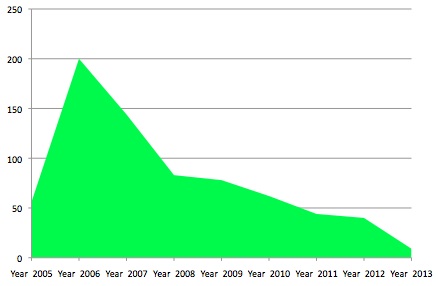Late last year, my principal passed along a document transcript of a keynote delivered by Dr Alan Reid from UniSA titled "Translating what? How PISA distorts policy, research and practice in education". I've looked for a copy online but can't seem to find one to link to so I am uploading the copy from my email inbox to share his analysis to a broader audience. I know that we used this transcript as a basis for a powerful dialogue around the proper use of data for learning in our leadership team, but the messages he delivers could translate well to any nation where the results from PISA are being used to publicly rate and rank how their students are doing. This is not the first time he has questioned the media's and government's over reliance on the rankings and data sets that these international tests provide.
Click on the link - Alan Reid keynote CredNovember14 - to download.
It seems that PISA can provoke warning signs of decline in any part of the world, but many media outlets here down under are quick to give these tests a very high level of credibility. A quick sample via Google shows this:
Maths results a concern in PISA schools study
New PISA results show education decline – it’s time to stop the slide
OECD report finds Australian students falling behind
And interestingly, within that last article was this observation from Dr Ken Boston:
Gonski review panellist and former director-general of NSW education Ken Boston said Australia should compare itself to Canada in OECD comparisons - which performed significantly higher than Australia in maths and reading.
Meanwhile, in Canada, who Australia should be seeking to emulate, PISA results are producing a similar reaction:
Canada's students slipping in math and science, OECD finds
And this article from the Vancouver Sun, has this gem of an observation which perhaps sums up a lot of the hysteria worldwide regarding PISA:
The only people who really revel in the PISA announcement of where Canada sits in the world rankings are politicians, business leaders and university academics well positioned to take credit for successes in public education and blame those lazy overpaid teachers for any drop in the PISA rankings.
You could substitute any number of countries in Canada's (or Australia's) place and the statement would feel true to many educators who find the reality of their classroom to be quite detached from the results and how they are interpreted for the public's benefit.
Anyway, have a read of Dr Reid's keynote and let me know what you think.


